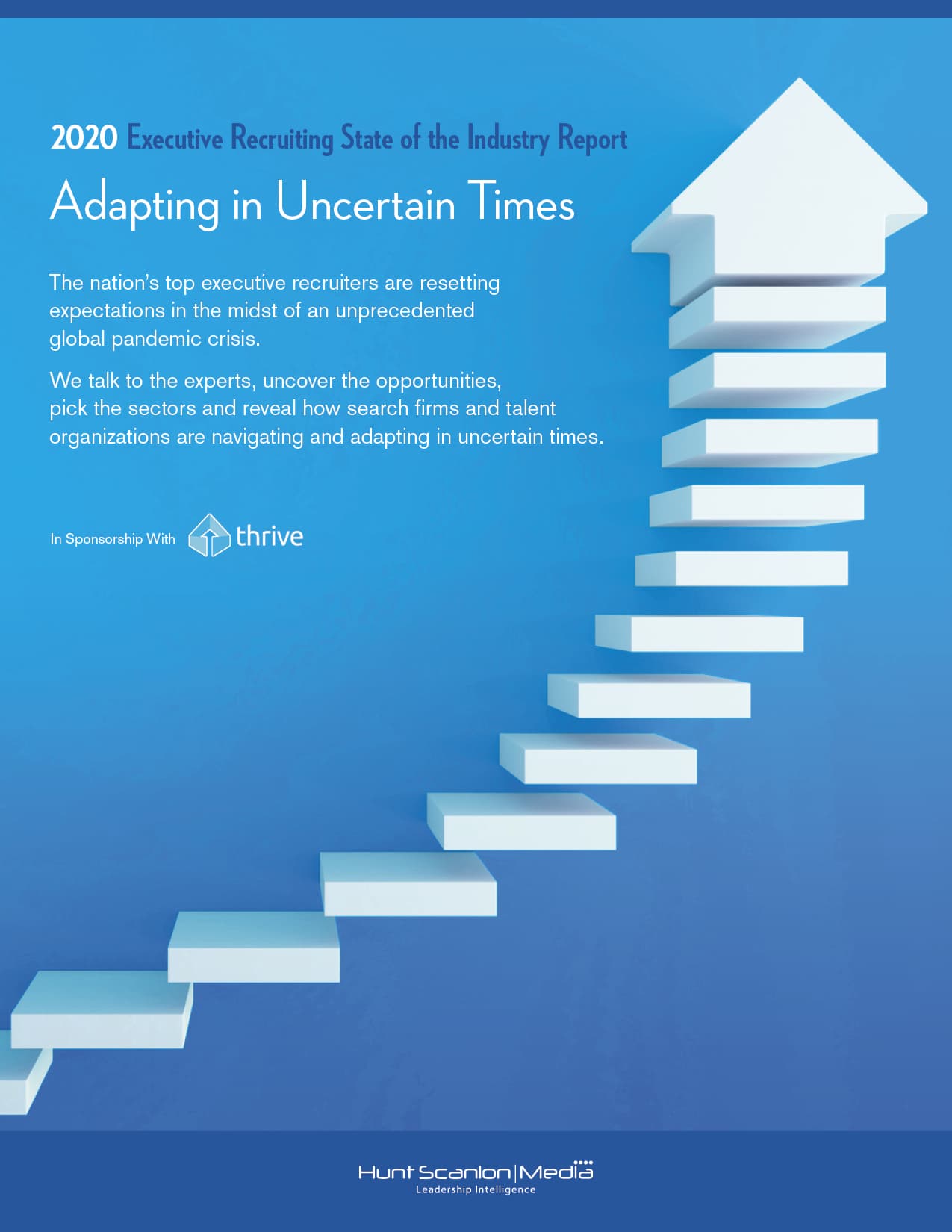Managing Through the COVID-19 Pandemic

March 30, 2020 – The COVID-19 pandemic is causing worldwide public health concerns and widespread disruptions across the global economy, including for businesses and schools. It has caused society to put a pause on public gatherings, sporting events, the arts, restaurants and nightlife, which otherwise would have provided relief during difficult times. As the crisis unfolded last week, the team at Summit Leadership Partners engaged in conversations with client management teams, CEOs and CHROs at a variety of organizations across several industries, helping them navigate their decision making during the crisis.
“We are living through unprecedented times,” said Summit Leadership Partners. “Our way of life is under threat, and it is now more important than ever for management teams to collectively lead by example and keep driving the business forward while managing the risks and impacts along the way.”
 Executive Recruiters & Talent Leaders Navigate Uncertain Times
Executive Recruiters & Talent Leaders Navigate Uncertain Times
Hunt Scanlon’s latest executive recruiting industry sector report will be available in 30 days. This will be the most important search industry sector report that Hunt Scanlon has ever produced! The nation’s top executive recruiters are resetting expectations in the midst of an unprecedented global pandemic crisis. Many expect a significant pause in business, followed by a sharp rebound later this year. We talk to the experts, uncover the opportunities, pick the sectors and reveal how search firms and talent organizations are navigating and adapting in uncertain times. Healthcare, biotech, crisis response, supply chain & logistics and the vast private equity sector are all showing signs of strength – and a big need for talent.
Hear from top talent experts, including: Frederickson Partners; CBIZ CMF; Russell Reynolds Associates; Odgers Berndtson; Options Group; ZRG Partners; Wilton & Bain; Diversified Search; Caldwell; Hanold Associates; True Search; Slayton Search Partners; Coulter Partners; Cejka Search; Solomon Page; Acertitude; McDermott & Bull; Academic Search; Beecher Reagan; Bowdoin Group; Kingsley Gate Partners; Comhar Partners; ON Partners; Perrett Laver; CarterBaldwin; Stanton Chase; Buffkin/Baker; Major, Lindsay & Africa; WittKieffer; Klein Hersh; Furst Group; Invenias; PierceGray; LifeSci Partners & more!
Insert an ad in our report, reserve your copy today and find out how you should adapt your business in these uncertain times.
Management teams are enduring significant levels of duress and uncertainty as the crisis evolves by the hour. “Regardless of the industry, management teams are facing their own set of unique challenges due to the COVID-19 crisis,” said the firm. “Now is the time for us to learn from each other and strengthen our management practices.”
From its conversations with these leaders, Summit Leadership Partners identified a few key strategies, best practices and insights that might help other management teams during this turbulent period. Some of the tips are specific to how organizations are responding to the COVID-19 pandemic and its unique challenges and scope; other tips are applicable in any kind of crisis or situation where your organization is confronting extreme volatility.
Establish your Mission-Critical Priorities
“In a time of crisis, everyone is feeling uncertainty,” said Summit Leadership Partners. “Employees, vendors and suppliers might be worried about getting paid or concerned about their job security. Business partners might fear disruptions to the supply chain or shortages of resources.”
Decide which stakeholders need to receive highest priority. “During this crisis, we believe the management team’s obligations need to start with prioritizing the organization’s employees, customers and the community,” the firm said. “The concerns and priorities of shareholders need to be a lower priority for now. One of our clients mentioned, ‘Right now I don’t have to worry about investors. Shareholders will ultimately be rewarded if we do the rest of this right.’”
In addition, a priority for most management teams is protecting cash to ensure business continuity and avoiding drastic actions, such as layoffs and shutdowns. “Reassure your employees and be accessible to customers,” said Summit Leadership Partners. “Manage your revenue-generating channels and activities. Care for your community. Maintain your business continuity. Many management teams are engaging in customer ‘call arounds’ to check-in and demonstrate support and empathy. Some are dividing calls across all executives and reaching out to critical customers to ensure their needs are met.”
Adapt Your Strategic Mindset for Volatility and Uncertainty
Management teams need to start by approaching this situation with the right mindset. The whole country and much of the world is in crisis mode. At times of extreme volatility and uncertainty, leaders at all levels, said the firm, but especially top management, need to adjust their strategic mindset in a few key ways:
- Agility: Be willing to think on your feet and adapt quickly to new information and changing circumstances. We are all having to respond in the moment.
- Focus: Focus on what is within your control. It’s easy for people to feel overwhelmed by the sheer magnitude of what’s going on in the world; however, leaders need to focus instead on what decisions they can make right now.
Related: Mastering the Online Interview has Just Taken on New Importance
- Decisiveness: Be able to make decisions quickly. It’s better to be proactive than to be inactive. In these moments of volatility, the risk of making mistakes is often outweighed by the risk of waiting too long and then being overtaken by external events.
- Courage: Now is the time for courage from our leadership and management teams. Be willing to make the tough choices, take accountability, be visible, and keep showing a good example for the rest of the team.
 Crisis Management: Leading in Times of Great Uncertainty
Crisis Management: Leading in Times of Great Uncertainty
The COVID-19 outbreak is making its way through the business world and costing organizations billions of dollars in lost revenue. Goldman Sachs estimates that economic growth around the world will be zero in 2020 thanks to the virus. Even that seems grossly underestimated. But the coronavirus is causing far more than just financial damage. Leaders are scrambling to secure supplies, keep fearful employees motivated to work, and, in some cases, maintain bold strategic plans that have been years in the making from falling apart.
“Most of our client management teams are holding at least two, brief but critical, decision meetings daily to address the above,” said Summit Leadership Partners. “The goals are twofold: Inform with the latest information and decide on how to handle. All have reported that traditional organization lines are eliminated, and certain leaders are temporarily appointed as decision makers on critical items such as how to treat employees, working rules, customer issues, supply chain, etc.”
Collectively Lead from Four Vantage Points
Once you’ve shifted your mindset and decision-making approach, it’s time to focus your leadership on four critical areas, starting outside your company and working your way in:
- External/outside the company: Follow the news and public health updates. Stay in contact with your customers and suppliers and invest time and energy to manage your business-critical relationships outside the organization. Now is the time for transparency and constant (frequent, but brief) communication. This can’t be done by one person on the management team – you’ve got to divide and conquer.
Also pay attention to what your peer companies are doing – you might want to get on the phone with your competitors and offer to share information and insights.
Related: 11 Key Strategies for Seeking a New Job During a Pandemic
- Horizontal/across the management team: Good management teams are communicating every day and are in constant contact throughout the day with brief, informative and decisive calls. Try to come out of every call with clear contingencies, specific ownership of action items, and 100 percent alignment on next steps on what is the messaging to employees.
- Inside/within the organization: When dealing with your direct reports or the broader organization, it’s more important than ever to be proactive with communication. “Get in front of employees and share information with them as soon as you can with transparent, simple and frequent messages,” said Summit Leadership Partners. “Nearly all our clients have an all-employee internal communication update released at least once a day. Reinforce your long-term commitment to the employees but focus on short-term actions for now. Don’t feel forced to have all the answers and don’t be afraid to say, ‘I don’t know yet.’”
- CEOs and CHROs need to keep a pulse on the management team: CEOs and CHROs need to remember that not everyone thrives in times of crisis, and not everyone is handling this well emotionally. Take some time to keep a pulse on the management team. They are struggling with a lot of stress and uncertainty right now, and they are the face to the employees. Make sure they have what they need.
“Despite the uncertainty, we will survive, and eventually thrive past this crisis,” said the firm. “Management teams have a unique opportunity to be part of the solution. Focus on staying informed while being calm and decisive. Recognize that we don’t have to be perfect, but we must act. Remember that our first obligations are to our communities, customers and employees – the shareholders can wait as we navigate this challenging situation together. Times of crisis tend to bring out the best in people, and our corporate management teams can lead the way.”
Related: Working Virtually Keeps Everyone Safe and Productive
Contributed by Scott A. Scanlon, Editor-in-Chief; Dale M. Zupsansky, Managing Editor; and Stephen Sawicki, Managing Editor – Hunt Scanlon Media











